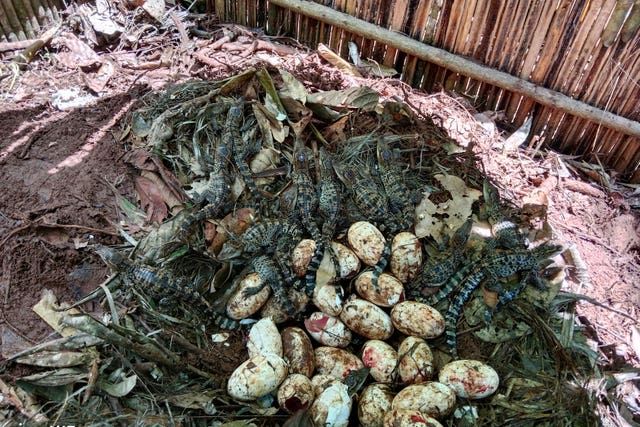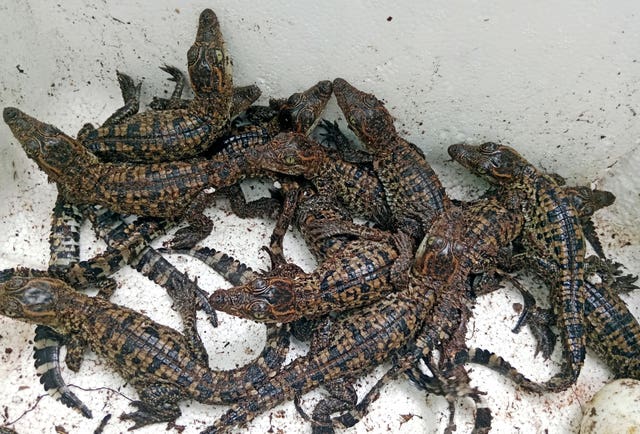Conservationists welcome discovery of 106 rare crocodile eggs in Cambodia
The discovery has been called the biggest in the last 20 years.

Conservationists in Cambodia have found 106 eggs of the rare Siamese crocodile species in a western Cambodian wildlife sanctuary, officials said.
The discovery has been called the biggest in the last 20 years, giving new hope for the world’s rarest crocodile species’ survival in the wild.
The group discovered the species eggs in Cardamom National Park in May.
Between June 27 and 30, a total of 60 eggs were successfully hatched, according to a joint statement issued by the ministries of agriculture and environment together with the conservation group Fauna & Flora.

The location and the young reptiles had been under the protection of Cardamom National Park Wildlife Sanctuary rangers, it added.
The crocodile species was once widespread across Southeast Asia but is now listed as critically endangered by the International Union for the Conservation of Nature.
It had all but disappeared by the 1990s due to a combination of poaching, habitat destruction and crossbreeding with other crocodile species.
Cambodian environment minister Eang Sophalleth said his ministry was working on the conservation and habitat restoration of these critically endangered Siamese crocodiles.

It is believed that about 1,000 Siamese crocodiles remain in the wild, with more than 300 of them in Cambodia.
In 2017, wildlife researchers found six eggs in Sre Ambel district in the southern province of Koh Kong as they were exploring for tracks and signs of the reptile.
Later in September 2021, eight hatchlings were found by conservationists in a river in the Srepok wildlife sanctuary in eastern Cambodia which also raised hopes for its survival in the wild.





